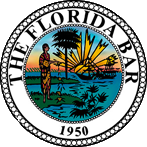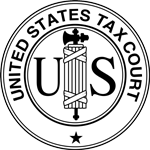Relief by Separation of Liability
Under this type of relief, you allocate (separate) the understatement of tax (plus interest and penalties) on your joint return between you and your spouse (or former spouse). The understatement of tax allocated to you is generally the amount you are responsible for.
This type of relief is available only for unpaid liabilities resulting from understatements of tax. Refunds are not allowed.
Requirements for Relief
To request relief by separation of liability, you must have filed a joint return and meet either of the following requirements when you file Form 8857.
- You are no longer married to or are legally separated from the spouse with whom you filed the joint return for which you are requesting relief. (Under this rule, you are no longer married if you are widowed.)
- You were not a member of the same household (explained next) as the spouse with whom you filed the joint return at any time during the 12 months ending on the date you filed Form 8857.
Members of the Same Household
You and your spouse are not members of the same household if you live apart and are estranged. However, you and your spouse are considered members of the same household if any of the following conditions are met.
- You and your spouse reside in the same dwelling.
- You and your spouse reside in separate dwellings but are not estranged, and one of you is temporarily absent from the other’s household, as explained below.
- Either spouse is temporarily absent from the household. It is reasonable to assume that the absent spouse will return to the household, and the household or a substantially equivalent household is maintained in anticipation of the absent spouse’s return. Examples of temporary absences include imprisonment, illness, business, vacation, military service, or education.
Burden of Proof
You must be able to prove that you meet all of the requirements for separation of liability (except actual knowledge) and that you did not transfer property to avoid tax (discussed later). You must also establish the basis for allocating the incorrect items.
Limitations on Relief
Even if you meet the requirements discussed previously, a request for relief by separation of liability will not be granted in the following situations.
- The IRS proves that you and your spouse (or former spouse) transferred assets to one another as part of a fraudulent scheme. A fraudulent scheme includes a scheme to defraud the IRS or another third party, such as a creditor, ex-spouse, or business partner.
- The IRS proves that at the time you signed your joint return, you had actual knowledge (explained below) of any incorrect items giving rise to the deficiency that were allocable to your spouse (or former spouse). Refer to Innocent Spouse Relief for more information about incorrect items.
- Your spouse (or former spouse) transferred the property to you to avoid tax or the payment of tax.
Actual Knowledge
The relief discussed here does not apply to any part of the understatement of tax due to your spouse’s erroneous items of which you had actual knowledge. You and your spouse remain jointly and severally liable for this part of the understatement.
If you had actual knowledge of only a portion of an incorrect item, the IRS would not grant relief for that portion of the item.
You had actual knowledge of an erroneous item if:
- You knew that an item of unreported income was received. (This rule applies whether or not there was a receipt of cash.)
- You knew of the facts that made an incorrect deduction or credit unallowable.
- For a false or inflated deduction, you knew that the expense was not incurred or not incurred to the extent shown on the tax return.
Knowledge of the source of an erroneous item is not sufficient to establish actual knowledge. Also, your actual knowledge may not be inferred when you merely had a reason to know of the incorrect item. Similarly, the IRS does not have to establish that you knew of the source of an erroneous item to establish that you had actual knowledge of the item itself.
Your actual knowledge of the proper tax treatment of an erroneous item is not relevant for purposes of demonstrating that you had actual knowledge of that item. Likewise, neither is your actual knowledge of how the incorrect item was treated on the tax return relevant for purposes of demonstrating actual knowledge. For example, if you knew that your spouse received dividend income, relief is not available for that income, even if you did not think it was taxable.
Please find out how easy it is to get started with our team. Start talking with our Attorney-Enrolled Agent-CPA in your free initial consultation by filling out our online form or by giving us a call at (772) 418-0949.











